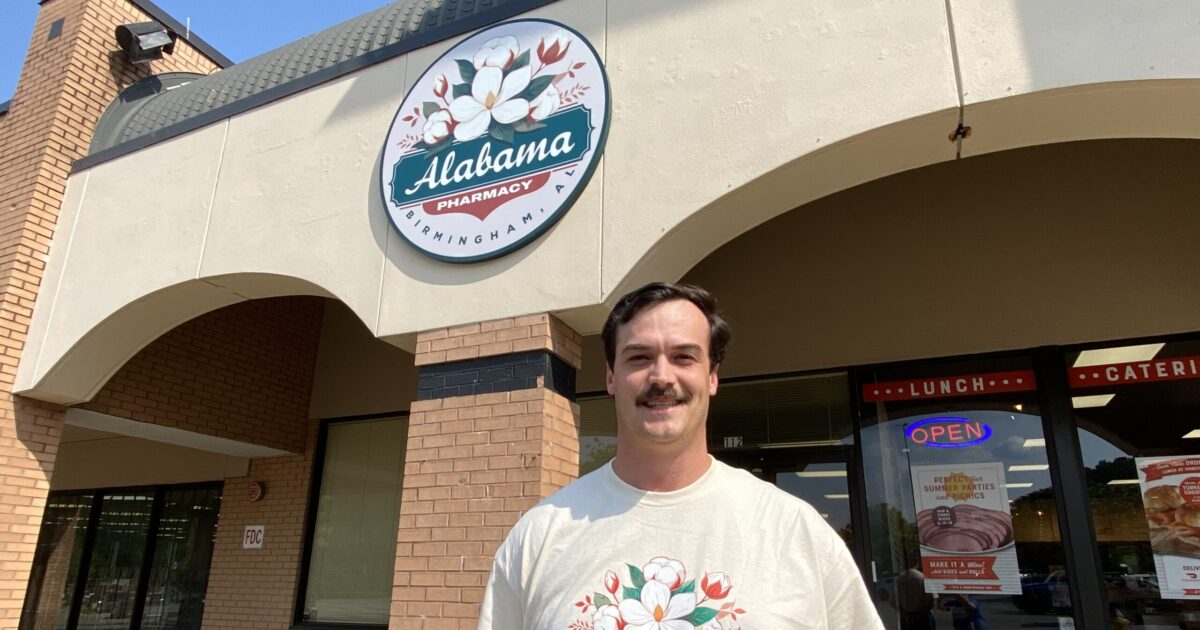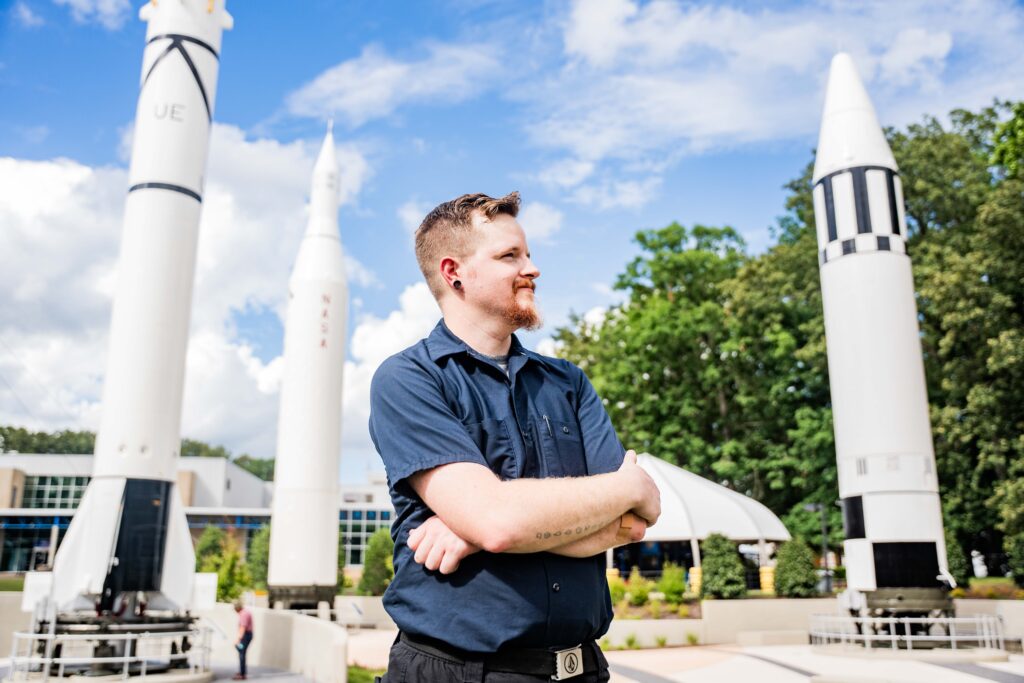It’s Stroke Month, and this advice from a Birmingham expert can save lives
Reading time: 6 minutes
Sponsored

May is American Stroke Awareness Month. We sat down (virtually, of course) with one of the top stroke experts in the state to share what Birmingham residents need to know when it comes to stroke symptoms, treatment and care. Learn all about it here!
First Things First: The Scary Side of Strokes

I grew up learning to share the worst parts first when you’re telling a story. The fact is, most of us probably know someone who’s been affected by a stroke. They’re hugely common in the United States. In fact, it’s the fifth leading cause of death for Americans.
Here are a few statistics about stroke in the US from the CDC, updated in January 2020:
- Stroke kills about 140,000 Americans each year—that’s 1 out of every 20 deaths.
- Someone in the United States has a stroke every 40 seconds. Every 4 minutes, someone dies of stroke.
- Every year, more than 795,000 people in the United States have a stroke. About 610,000 of these are first or new strokes.
- Stroke is a leading cause of serious long-term disability. Stroke reduces mobility in more than half of stroke survivors age 65 and over.
Sure, the numbers can be a bit frightening. However, it’s good to be aware of the risk and how serious strokes are. When you know what’s at stake, you’re much less likely to attempt “waiting it out” or driving yourself to the hospital—neither of which are great ideas when it comes to a stroke.
Meet the Expert
Jitendra Sharma, M.D., is an interventional neurologist at Brookwood Baptist Medical Center. He earned his medical degree at M.G.M. Medical College in India and completed fellowships in Serono Research, Vascular Neurology and Neurointervention.
Dr. Sharma specializes in Interventional Neurology, and he’s one of only five physicians in the state of Alabama to do so.
“Interventional neurology is an emerging field. What we do is we… go inside the blood vessel and we try to help patients who have blood clots in the brain…
As interventional neurologists, we can take care of stroke intervention, which means pulling the blood clot out. We also take care of brain aneurysms and close them off…
Even carotid artery disease, we can insert a stent. So that’s what the umbrella of interventional neurology covers.”
Dr. Sharma, Interventional Neurologist, Brookwood Baptist Medical Center
These procedures are very new to the field, and patients have shown significant improvements immediately after surgery. The methods are also much less invasive than traditional brain surgeries.
Dr. Sharma currently practices within the Brookwood Baptist Health Primary & Specialty Care Network.
- Address: 513 Brookwood Blvd
- Office: Building D, Suite 372
- Phone: (205) 802-6595
- Fax: (205) 802-6598

Brookwood Baptist Medical Center is a Certified Primary Stroke Center. This essentially means you’re getting the best of the best when it comes to stroke care. They’re prepared 24 hours a day + seven days a week to treat these urgent medical emergencies.
For the past 3 years, the American Heart Association and American Stroke Association have also granted Brookwood Baptist Medical Center the highest level of recognition for stroke care it awards. This establishes both their quality and speed of care as the true gold standard in Alabama and beyond.
Stroke Symptoms
When it comes to strokes, the key is to BE FAST. Strokes are considered one of the most urgent medical emergencies, which means seconds matter. The faster a patient gets to the hospital and receives treatment, the better their chance of recovery.
Knowing and recognizing the symptoms of a stroke can be the difference in survival and/or lasting damage in you or someone you love. BE FAST isn’t just important to remember in your reaction time—it’s also important when you see symptoms.
- Balance. Dizziness or lack of coordination
- Eyes. Blurry or double vision or loss of vision in one eye
- Face. Ask the person to smile. Does one side of the face droop?
- Arm. Is one arm weak or numb? Ask the person to raise both arms. Does one arm drift downward?
- Speech. Is speech slurred or strange? Ask the person to repeat a simple sentence. Do they do it correctly?
- Time. Time is critical. If a person shows any of these symptoms, call 911 immediately.
Stroke Response

We can’t say it enough: time + treatment are CRITICAL in stroke situations. So let’s talk about emergencies during a pandemic. Apprehension about going to a hospital right now is understandable, and you should always take precautions.
However, the risk of an untreated stroke statistically outweighs the risk of a virus. If you’re experiencing symptoms or are around someone who is, call 911 immediately. Don’t wait it out home, don’t hop in your car and mosey on down to your local urgent care.
“Once the blood flow to the brain is stopped, every minute, millions of brain cells die… We see sometimes in the community that people want to stay home—they think it will go away.
Instead, it just gets worse and worse, and then they come to the hospital, and then it’s too late for us to help them.”
Dr. Sharma, Interventional Neurologist, Brookwood Baptist Medical Center
Misconceptions and Intervention
After learning from Dr. Sharma, I realized some of my ideas about strokes were incorrect. I always believed that as a twenty-something, I was basically immune. Turns out, people as young as 24 years old can fall victim.
“What we are seeing nowadays is patients who are young are having more strokes. Risk factors such as diabetes, cholesterol, high blood pressure, obesity—all these risk factors play a role in having a stroke.
We are seeing more and more patients who are 40 or 50 coming to us with stroke-like symptoms.”
Dr. Sharma, Interventional Neurologist, Brookwood Baptist Medical Center
So, now that you know the symptoms + how to respond, we’ve reached the most important question (at least in my opinion). How can you prevent a stroke? Of course, there’s no foolproof method, but there are ways you can be proactive. Here’s what Dr. Sharma recommends:
- Quit smoking, if applicable
- Monitor blood pressure and keep it within the recommended range
- Less salt
- Less fried food
- More fruits and vegetables
- Exercise at least 20-30 minutes, 2-3 times a week
To find more health + wellness advice from world-class experts here in our Magic City, sign up for BBH’s monthly newsletter right here.
Sponsored by:



